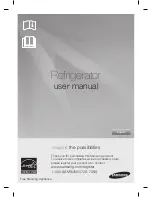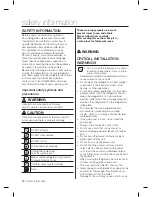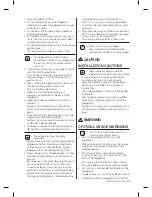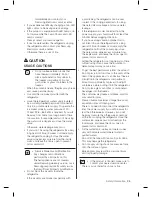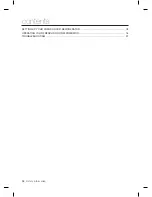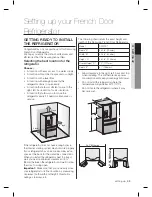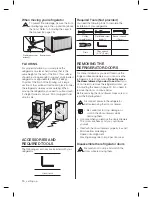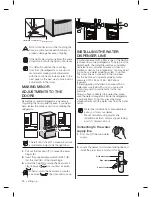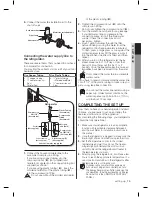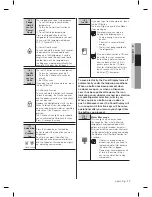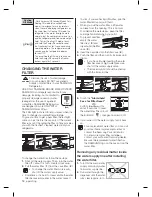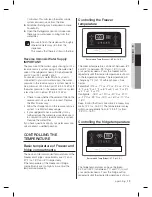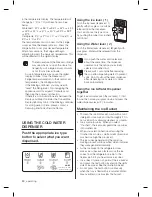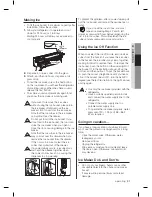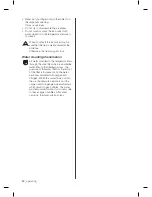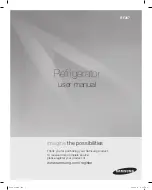
Safety information
_07
•
The appliance might not operate consistently
(frozen contents can thaw or temperatures
can become too warm in the frozen food
compartment) when sited for an extended
period of time in a location where ambient
air temperatures are constantly below the
temperatures for which the appliance is
designed.
•
Do not store food which goes bad easily at low
temperature, such as bananas and melons.
•
Your appliance is frost free, which means there
is no need to manually defrost your appliance.
This will be carried out automatically.
•
Temperature rise during defrosting complies
with ISO requirements. But If you want to
prevent an undue rise in the temperature of the
frozen food while the appliance defrosts, wrap
the frozen food in several layers of newspaper.
•
Any increase in the temperature of frozen food
during defrosting can shorten its storage life.
•
Do not re-freeze frozen foods that have
thawed completely.
Saving Energy Tips
- Install the appliance in a cool, dry room with
adequate ventilation. Ensure that it is not
exposed to direct sunlight and never put
it near a direct source of heat (radiator, for
example).
- Never block any vents or grilles on the
appliance.
- Allow warm food to cool down before placing
it in the appliance.
- Put frozen food in the refrigerator to thaw.
You can then use the low temperatures of the
frozen products to cool food in the refrigerator.
- Do not keep the door of the appliance open for
too long when putting food in or taking food
out. The shorter the time the door is open, the
less frost build-up you’ll have in the freezer.
- Provide sufficient clearance to the right, left,
back, and top when installing for air circulation.
This will help reduce power consumption and
keep your energy bills lower.
Summary of Contents for RF24FSEDBSR
Page 35: ...memo...
Page 107: ...Note...

